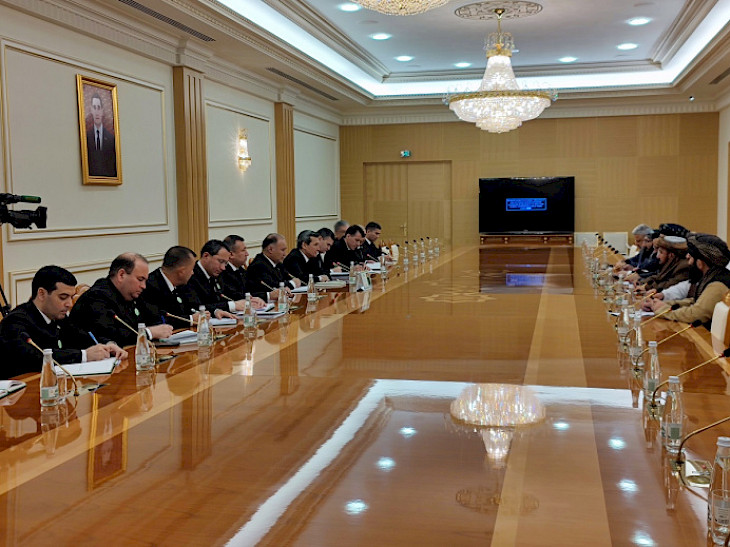During negotiations in Ashgabat with the Afghan delegation, the Ministry of Foreign Affairs of Turkmenistan, among other important issues, emphasized the topic of cooperation in the water management sector, Orient reports.
"The Turkmen side noted that the rational use of water resources in the region should be based on internationally recognized norms of international law regulating the water use regime in transboundary rivers, watercourses, and border lakes," the statement said, published following the visit of the Afghan delegation, led by the Acting Minister of Industry and Trade, Nuruddin Azizi, from March 4 to 6 of this year to participate in an exhibition of Afghan goods, a business forum, and other events aimed at expanding trade and economic ties.
In particular, the Afghan delegation's attention was drawn to the need for a scientifically substantiated and well-thought-out approach to water intake from transboundary rivers, primarily considering the real needs for the use of water resources.
The importance of ensuring that the construction of hydro-technical structures on transboundary rivers is carried out by highly qualified personnel capable of ensuring the proper operation of such facilities was emphasized.
Furthermore, the necessity of unequivocally safeguarding the interests of all states located along transboundary rivers was highlighted, based on international law and through the creation of corresponding mechanisms for water resource management, grounded in the principles of good neighborliness, mutual respect, equality, and transparency.
"The meeting with the Afghan delegation took place in a friendly and constructive atmosphere," added the Turkmenistan Ministry of Foreign Affairs.
The issue of proportionate use of water from the Amu Darya River gained special importance after the Taliban authorities unilaterally began diverting about 15% of the water from the river to fill the Kosh-Tope canal. This could lead to a shortage of irrigation water in Uzbekistan and Turkmenistan.
CentralasianLIGHT.org
March 7, 2024

